
In episode 195, Kestrel welcomes Umberto De Marco, the founder of sustainable footwear brand, YATAY, to the show. In addition to his work building sneaker brand YATAY, Umberto is the president of eco-leather giant and family business Coronet.
“What I’ve been doing since I started working in the family company — I had a mission: trying to change a material that has always been just a simple, cheap alternative of leather — trying to evolve this material in a more sustainable and durable one.”-Umberto de Marco, Founder of YATAY
On this week’s show, Umberto shares more on how he grew up in the leather alternatives industry, with his father being a pioneer in ‘eco-leathers’. When he joined the family business, Umberto was focused on finding more sustainable alternatives to the poly-based leathers they were offering.
Also, Umberto shares more on his own company YATAY, and how they are working to further close the loop in their manufacturing, so eventually, every component of the shoe can be recycled and put back into future shoes.
Being that YATAY and Coronet are based in Milan, Italy, Umberto shares more on how COVID-19 has impacted his work and what he thinks lies ahead for the fashion industry-at-large.
The below thoughts, ideas + organizations were brought up in this chat:
70% of the electricity used for the production at Coronet’s facilities comes from solar panels.
At Coronet, they started an incentive program for their workers, where all the money that is saved from their efforts in reducing waste in the manufacturing process is given back to the workers at the end of each year.
YATAY’s shoe box converts into a backgammon board game, as a way to reduce the waste that comes with packaging. Also, they include a little bag made from excess bio-based leather, complete with checkers inside.
YATAY Forest, on the back of each pair of shoes, there is a code — when a shopper enters it on the website, they can select what type of tree they’d like to plant in YATAY’s “forest” in Kenya, and then they can monitor their tree and stay up to date on how it’s growing and how much CO2 it absorbs. Also, the shopper will be advised on when their tree has absorbed enough CO2 to offset the production of their shoes.
More on the materials in YATAY’s shoes >More Episodes
Motherhood, entrepreneurship & sustainability: navigating impossible expectations while caring for yourself and others, and building things that center care
 2024-10-29
2024-10-29
Kestrel on vulnerability, personal health, podcast evolutions & a question to sustainable fashion folks: are you OK?
 2024-10-15
2024-10-15
Nelson ZêPequéno of Black Men With Gardens and Cayetano Talavera of Hecho By Caye on why fashion needs to listen to nature’s lessons on slowing down, tuning in, practicing patience & cultivating creativity to better center sustainability
 2024-07-02
2024-07-02
Teju Adisa-Farrar of Black Fiber & Textile Network and Author Layla K. Feghali on geography and what our relationship to place can teach us about *sustainability*
 2024-06-11
2024-06-11
Wafa Ghnaim of Tatreez and Tea & Dr. Tanveer Ahmed of Central Saint Martins on preserving culture, decolonial frameworks, and how intersectional reform can be a pathway toward sustainable fashion futures
 2024-04-23
2024-04-23
Sustainable fashion podcasters unite — Emily Stochl of Pre-Loved Podcast & Stella Hertantyo of Conscious Style Podcast help us reflect on 11 years since Rana Plaza, celebrating collective movements & ways to focus our continued advocacy
 2024-04-09
2024-04-09
Upcycling artists Francisco Alcazar & Ella Wiznia of Series NY are redefining sustainable fashion while reimagining craft & challenging the gender binary
 2024-03-26
2024-03-26
How gender plays into the devaluing of knowledge and its links to sustainable fashion & wellness with Megan Schnitker of Lakota Made and Niha Elety of Tega Collective
 2024-03-12
2024-03-12
Celebrating the cultural tradition, past and present, of Palestinian Tatreez with artists / educators Lina Barkawi and Eman Toom & why sustainable fashion must include cultural sustainability
 2024-02-27
2024-02-27
Intergenerational knowledge & sustainable fashion — how clothing is more than just aesthetics; it’s about the upholding of cultural practices and the amplifying of knowledge & traditions
 2024-02-13
2024-02-13
Vintage stylist Beth Jones & Dounia Wone of Vestiaire Collective on whether fast fashion brands fit into the resale experience
 2024-01-30
2024-01-30
Why self work is integral to advocating for transformation in fashion & why we must deeply question our personal values to truly get active in creating a more sustainable fashion future
 2024-01-16
2024-01-16
Denali Jöel on fashion as an art praxis rooted in Afro-Indigenous philosophies, interrogating the emphasis placed on the *industry* & reminding us of the possibility of creating new ecosystems
 2023-11-07
2023-11-07
Julius Tillery aka the "Puff Daddy Of Cotton" on the need to remix both the perception of the cotton industry and the business model
 2023-10-30
2023-10-30
Cassandra Pintro of Consumption Project on welcoming her community to challenge their buying habits and question what is *enough*
 2023-10-24
2023-10-24
Jeanell English on navigating the pressure to project a certain image in business & across climate spaces and balancing the worlds of activists & execs as a leader in impact
 2023-10-17
2023-10-17
Muchaneta Ten Napel on utilizing tech as a tool to change how fashion does business, not a crutch that will *save us all* & preparing for the fashion policy changes that are on the horizon
 2023-10-10
2023-10-10
*Breaking It Down* with Rachel Arthur, lead author of The Sustainable Fashion Communication Playbook, an actionable guide co-published by UNEP and UN Climate Change
 2023-09-26
2023-09-26
Tameka Peoples of Seed2Shirt on rebuilding equitable + just cotton systems & fostering the reclamation of cotton acreage for Black farmers
 2023-09-19
2023-09-19
Lisa Diegel, Global Sustainability Director, on Faherty's Native Initiatives, what mutually beneficial relationships can look like in practice, and the nuanced ways brands must take responsibility for the products they put out into the world
 2023-09-12
2023-09-12
Create your
podcast in
minutes
- Full-featured podcast site
- Unlimited storage and bandwidth
- Comprehensive podcast stats
- Distribute to Apple Podcasts, Spotify, and more
- Make money with your podcast
It is Free
You may also like
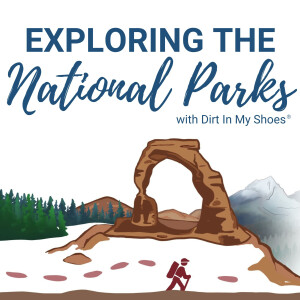
Exploring the National Parks

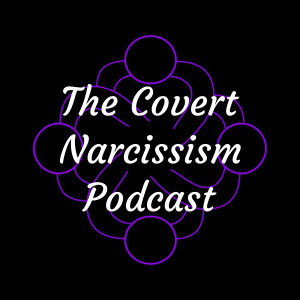
The Covert Narcissism Podcast


Greece Travel Secrets Podcast

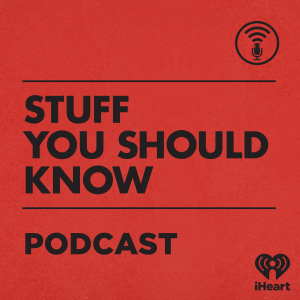
Stuff You Should Know

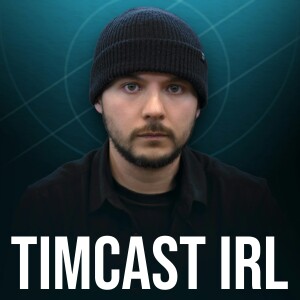
Timcast IRL


- Privacy Policy
- Cookie Policy
- Terms of Use
- Consent Preferences
- Copyright © 2015-2024 Podbean.com

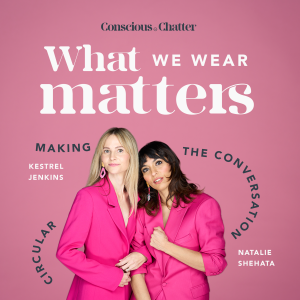

 iOS
iOS Android
Android